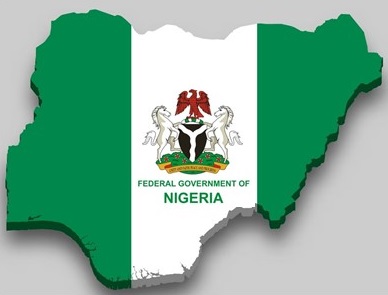By: Modupe Adeniyi. Freelance Health Reporter.
 MONDAY, SEPTEMBER 09, 2024. In a significant move to tackle the increasing exodus of health professionals, the Nigerian government has recently approved the "National Health Workforce Migration Policy." This strategic initiative aims to address the challenges posed by the migration of health workers, which has become a pressing issue for the nation's healthcare system.
MONDAY, SEPTEMBER 09, 2024. In a significant move to tackle the increasing exodus of health professionals, the Nigerian government has recently approved the "National Health Workforce Migration Policy." This strategic initiative aims to address the challenges posed by the migration of health workers, which has become a pressing issue for the nation's healthcare system.
The policy was developed through a collaborative effort involving the Federal Ministry of Health and Social Welfare (FMOH), the World Health Organization (WHO), and support from the UK government's Department of Health and Social Care (DHSC). This partnership highlights the collective responsibility shared among stakeholders in addressing the migration of health professionals.
The migration of skilled healthcare workers has posed a considerable challenge for Nigeria, leading to significant shortages. Currently, Nigeria is listed among the 55 countries facing acute health worker shortages, as noted by the WHO. This trend undermines the quality of healthcare services and hampers progress toward achieving health-related Sustainable Development Goals (SDGs).
The development of this policy involved extensive consultations with various stakeholders in Nigeria's health sector, including representatives from the diaspora.
It aligns with a broader initiative for health sector renewal that focuses on:
By addressing these essential areas, the policy aims to ensure that Nigeria can effectively meet its healthcare workforce needs and contribute positively to global health.
To alleviate the impacts of the health worker shortage, the FMOH has implemented several critical interventions. These include:
Additional policies, such as the National Human Resource for Health (HRH) policy and guidelines for optimal resource utilization, further support these efforts. The WHO is also aiding the government in strengthening evidence generation through the establishment of comprehensive health workforce data systems.
Professor Muhammed Pate, the Coordinating Minister of Health and Social Welfare, emphasized that this policy reflects a commitment to building a resilient health system capable of meeting the needs of Nigerians. He stated, "This initiative is not merely a response to the migration of healthcare professionals, it is a strategic framework aimed at managing and reversing this trend. It envisions a well-supported workforce that can effectively serve the healthcare needs of our population." He also urged recipient countries to adopt a one-for-one training approach to replace each Nigerian health worker they employ.
Dr. Walter Kazadi Mulombo, WHO Representative in Nigeria, commended the government's proactive approach to managing health worker migration. He remarked, "The approval of this policy marks a pivotal step toward achieving health-related SDGs in Nigeria. By addressing the root causes of migration and promoting sustainable workforce planning, Nigeria can enhance health outcomes for its citizens. WHO is proud to support this initiative, which will not only benefit Nigeria but also contribute to global health equity."
The UK government has provided funding to support evidence-based policy development and implementation in Nigeria. Additionally, the UK, through its Foreign, Commonwealth & Development Office (FCDO), will assist at least 12 health training institutions across six states with necessary equipment to enhance training quality for students in these institutions. The WHO has mobilized resources at multiple levels to provide technical support to Nigeria's health sector strategic initiatives.
The WHO Health Workforce Support and Safeguard List advocates for bilateral agreements informed by Health Labour Market Analysis (HLMA). In this regard, WHO is assisting Nigeria in conducting HLMA and formulating an implementation plan for the new policy, including guidelines for agreements with countries that employ Nigerian health workers. In recent years, WHO has strengthened coordination efforts regarding health workforce interventions in Nigeria. The organization is committed to supporting evidence generation, capacity building and policy development to enhance the effectiveness of Nigeria's health workforce and achieve universal health coverage.
Published: September 9, 2024
© 2024. Datelinehealth Africa Inc. All rights reserved.
Permission is given to copy, use and share content for non-commercial purposes without alteration or modification and subject to source attribution.
DATELINEHEALTH AFRICA INC., is a digital publisher for informational and educational purposes and does not offer personal medical care and advice. If you have a medical problem needing routine or emergency attention, call your doctor or local emergency services immediately, or visit the nearest emergency room or the nearest hospital. You should consult your professional healthcare provider before starting any nutrition, diet, exercise, fitness, medical or wellness program mentioned or referenced in the DatelinehealthAfrica website. Click here for more disclaimer notice.